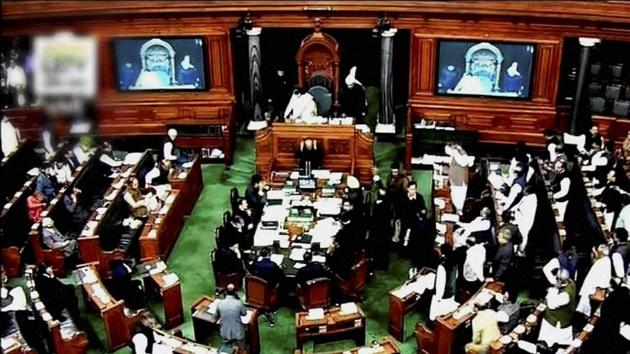Rahul wants to speak of Modi’s ‘corruption’ in Lok Sabha: Why it won’t be easy
Rahul Gandhi claimed on Wednesday that he had “personal information” about corruption by Prime Minister Narendra Modi, but the ruling Bharatiya Janata Party’s lawmakers did not allow him to speak in the Lok Sabha.
Congress vice-president Rahul Gandhi claimed on Wednesday that he had “personal information” about corruption by Prime Minister Narendra Modi, but the ruling Bharatiya Janata Party’s lawmakers were not allowing him to speak in the Lok Sabha.

Gandhi didn’t give details, saying he first wanted to share the information in the House. Opposition parties too alleged that the ruling side was gagging the voices of protests.
But for Gandhi, things are not going to be easy.
Members of Parliament (MPs) have complete freedom to speak their mind in the House and cannot be hauled to court even if their statements are defamatory. This freedom, however, has to be exercised within the rules of procedure of the Lok Sabha.
And these rules, for one, do not allow MPs to spring surprises in such cases.
Before allegations can be levelled against anyone in the House, members have to give prior notice to the Speaker and the minister concerned about the charges.
This is to enable the minister to probe the allegation, according to the rules, “for the purpose of a reply”. And the Speaker retains the right to prohibit the member if the Chair concludes that the allegation is derogatory to the dignity of the House or doesn’t serve public interest.
But the process to level an allegation against a minister became a little more difficult on April 9, 1981.
This was when Vatakara MP, KP Unnikrishnan, started out to attack the minister of state for science and technology, CPN Singh.
Highlights
MPs have complete freedom to speak their mind in the House. This freedom, however, has to be exercised within the rules of procedure of the Lok Sabha
The process to level an allegation against a minister became a little more difficult in 1981
If an MP tries to level an allegation without following the due procedure, the Chair would be well within its powers to expunge it from the records
Law minister P Shiv Shankar promptly objected, pointing to the rule that barred members from reflecting upon the conduct of persons in high authority unless the discussion was based on a substantive motion on this subject.
“Deputy speaker G Lakshmanan concurred with the law minister’s point of order and gave the ruling in his favour,” former Lok Sabha secretary general PDT Achary told HT.
He said the motion would have to be drafted with the approval of the Speaker, who had the last word.
If an MP tries to level an allegation without following the due procedure, the Chair would be well within its powers to expunge it from the records, Achary, who was secretary general during the 14th and 15th Lok Sabha, said.
There is, however, just one little loophole.
MPs can talk about the allegation without explicitly naming the minister, or in this case, the Prime Minister. There have been members who are able to work around the rules. “In such cases, the member has to be very tactful in formulating his statement,” he said.





